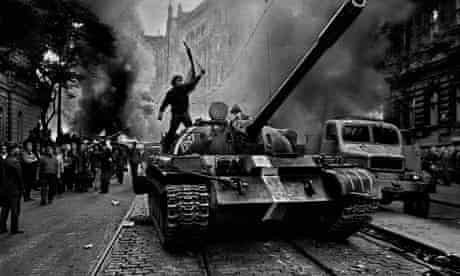 Another Philip Kerr’s Bernie Gunther novel I order after reading [and taking place after] Prussian Blue, again with a double entendre title and plenty of smart lines representative of berliner Witz and Schnauze. But much darker than Prussian Blue, as the main character, Bernie Gunther, is getting more morally ambivalent, as a member of the SS, having participated in the mass murders of the Einsatzgruppen on the Eastern Front before his return to Berlin as a member of the intelligence branch of the SS. Under direct orders of Reinhard Heydrich, whose role in the novel is almost as central as Gunther’s. It is thus harder to relate to this anti-hero, and his constant disparagement of Nazis, when he is at the same time a significant if minor part of the Nazi State. It is also unplesant that most characters in the novel are mass murderers, to end up being executed after the war, as described in a post-note. Still, the story has strength in both the murder inquiry itself (until it fizzles out) and the immersion in 1942 Germany and Tchecoslovakia, a strength served by the historical assassination of Heydrich in May 1942. An immersion I do not wish to repeat in a near future, though…
Another Philip Kerr’s Bernie Gunther novel I order after reading [and taking place after] Prussian Blue, again with a double entendre title and plenty of smart lines representative of berliner Witz and Schnauze. But much darker than Prussian Blue, as the main character, Bernie Gunther, is getting more morally ambivalent, as a member of the SS, having participated in the mass murders of the Einsatzgruppen on the Eastern Front before his return to Berlin as a member of the intelligence branch of the SS. Under direct orders of Reinhard Heydrich, whose role in the novel is almost as central as Gunther’s. It is thus harder to relate to this anti-hero, and his constant disparagement of Nazis, when he is at the same time a significant if minor part of the Nazi State. It is also unplesant that most characters in the novel are mass murderers, to end up being executed after the war, as described in a post-note. Still, the story has strength in both the murder inquiry itself (until it fizzles out) and the immersion in 1942 Germany and Tchecoslovakia, a strength served by the historical assassination of Heydrich in May 1942. An immersion I do not wish to repeat in a near future, though…
As a side story, I bo ught this used book for £0.05 on Amazon and received a copy that looked as if it has been stolen from a library from East Renfrewshire, south of Glasgow, as it still had a plastic cover, the barcodes and the list of dates it had been borrowed. I thus called the central offices of the East Renfrewshire libraries to enquire whether or not the book had been stolen, and was told this was not the case, the book being part of a bulk sale of used books by the library to second hand sellers. And that I could enjoy reading the book at my own pace! (As a second order side story, East Renfrewshire is the place in Scotland where Rudolph Hess landed when trying to negociate on his own a peace treaty with Great-Britain in 1942.)
ught this used book for £0.05 on Amazon and received a copy that looked as if it has been stolen from a library from East Renfrewshire, south of Glasgow, as it still had a plastic cover, the barcodes and the list of dates it had been borrowed. I thus called the central offices of the East Renfrewshire libraries to enquire whether or not the book had been stolen, and was told this was not the case, the book being part of a bulk sale of used books by the library to second hand sellers. And that I could enjoy reading the book at my own pace! (As a second order side story, East Renfrewshire is the place in Scotland where Rudolph Hess landed when trying to negociate on his own a peace treaty with Great-Britain in 1942.)
 Just heard that Milan Kundera, Czech-French author of The Unbearable Lightness of Being and other fantastic books had passed away on Tuesday in Paris. I still remember from the mid 1980’s the deep impression this book left on me, both as a bitter-sweet love story with the Prague Spring and its aftermath as its background, and as a philosophical existentialist reflection on the absurdity of life. I have not reread any of his novels since the 1980’s, but they still stand on my bookshelves and in a lighter (and bearable) future, I will likely get back to them. May the lightness of unbeing be more bearable to him!
Just heard that Milan Kundera, Czech-French author of The Unbearable Lightness of Being and other fantastic books had passed away on Tuesday in Paris. I still remember from the mid 1980’s the deep impression this book left on me, both as a bitter-sweet love story with the Prague Spring and its aftermath as its background, and as a philosophical existentialist reflection on the absurdity of life. I have not reread any of his novels since the 1980’s, but they still stand on my bookshelves and in a lighter (and bearable) future, I will likely get back to them. May the lightness of unbeing be more bearable to him!


